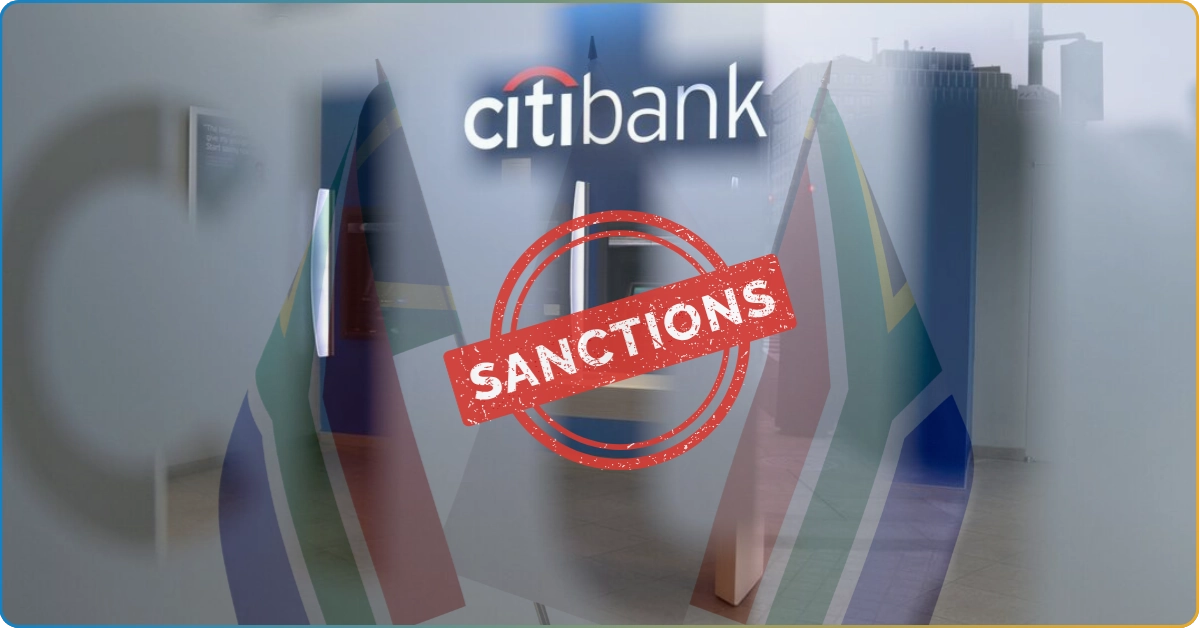Citibank has just been fined R6 million in South Africa. The FSCA’s decision rattled the banking compliance framework overnight.
Was this penalty a fair move or a warning shot to bigger scandals ahead? This TRU Insight examines why Citibank in South Africa faced sanctions and what implications this holds for other major banks.
Dive into how this ruling impacts this bank’s credibility, future operations, and the country’s tightening regulatory standards. Uncover the truth that could reshape your trust in South Africa’s banking giants.
Citibank: Company Background Overview
Did you know Citibank has been around since 1812? Back then, it was called the City Bank of New York. Fast forward to today, it’s under Citigroup Inc. with Jane Fraser leading as CEO.
In South Africa, Citibank established its presence in 1920 with an office in Cape Town. It expanded to Johannesburg in 1958 and re-established its branch in 1995.
According to Citibank’s public disclosure, it remains South Africa’s largest foreign bank. It’s recognized as the Best Foreign Bank in South Africa by EMEA Finance both in 2022 and 2023.
Globally, this bank is regulated by the OCC and locally supervised by the SARB. Their strong commitment to compliance ensures they remain trusted by corporates and investors alike.
But here’s the twist – despite its transparency and tight controls, they got slapped with a conditionally suspended R6 million fine for compliance gaps in 2025. Makes you wonder what really happened behind the scenes, right?
Why was Citibank Sanctioned?
The recent sanction has raised questions across South Africa’s banking sector. Below is a breakdown of the factors that led to the penalty, the findings, and the bank’s response.
Inspection That Triggered the Sanction
According to SARB Media Relations, the Prudential Authority conducted an inspection on Citibank in 2022 under section 45B of the Financial Intelligence Centre Act (FIC Act). What started as a routine check turned serious when compliance gaps surfaced.
This inspection became the foundation for formal administrative action against the bank.
Main Compliance Violation
The critical issue was Citibank’s failure to implement its Risk Management and Compliance Programme (RMCP). This violation specifically involved advance payment transactions, highlighting lapses in anti-money laundering controls.
Under Section 42 of the FIC Act, banks are required to maintain robust RMCP frameworks to monitor and manage transaction risks effectively.
R6 Million Penalty Imposed
In March 2025, the Prudential Authority imposed a financial penalty totalling R6 million on Citibank. However, the fine was fully suspended for 12 months, effectively serving as a conditional warning.
If they avoids repeating the same compliance breaches, it will not need to pay the suspended amount.
Citibank’s Cooperation and Remedial Measures
Despite the sanction, Citibank fully cooperated with the authorities throughout the process. The bank has also undertaken necessary remedial actions to address all identified control weaknesses and compliance gaps.
This proactive approach reinforces the company’s commitment to regulatory standards, despite the temporary dent in its reputation.
Broader Implications for South Africa’s Banking Sector
The sanction serves as a reminder that even large global banks are not exempt from South Africa’s tightening financial regulations. It underlines the need for all banks to strengthen their compliance protocols to avoid similar scrutiny.
Here’s the full scope of the Media Release: Prudential Authority imposes administrative sanctions on Citibank N.A. South Africa Branch.
As reported by Afrikaans on CommuniTrade, Citibank’s reputation is now being put to the test. Investors are on edge, watching how this compliance issue might ripple through its South African operations.
If you want access to insightful conversations and stay informed about market trends, joining CommuniTrade can be life-changing. Connect with thousands of verified users and navigate the industry with clarity and confidence today.
FAQ
What is the role of the FSCA in administrative sanctions?
The Financial Sector Conduct Authority (FSCA) is South Africa’s financial watchdog, which enforces fair treatment of customers and market integrity. It worked alongside the Prudential Authority during Citibank’s compliance inspection.
What happens when the FIC Act sanctions a business?
When a business is sanctioned under the Financial Intelligence Centre Act (FIC Act), it faces financial penalties or warnings for non-compliance with anti-money laundering laws, which can damage its operational reputation and investor trust.
Final Verdict: What Citibank’s R6 Million Fine Means?
Citibank’s R6 million sanction highlights the cracks even within globally trusted institutions. It’s a wake-up call for all South African banks to strengthen compliance before reputations crumble further.
If you’re serious about staying ahead of these market-shifting headlines, CommuniTrade offers more than just insights. Join thousands of verified users and turn critical news like this into smarter trading moves for your financial journey.

















